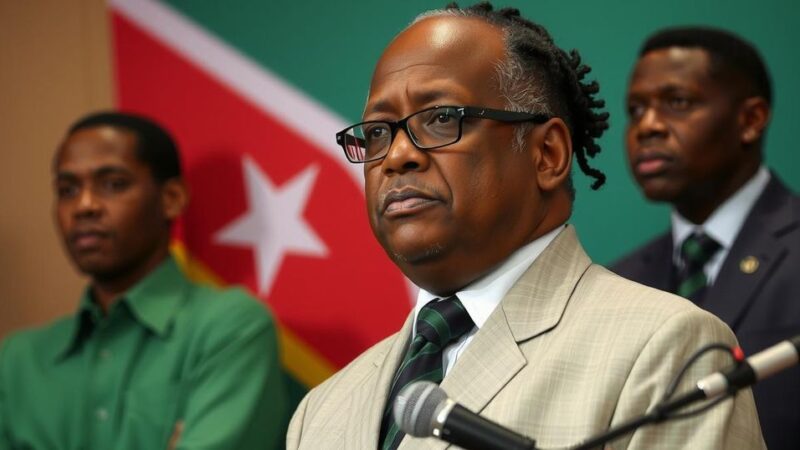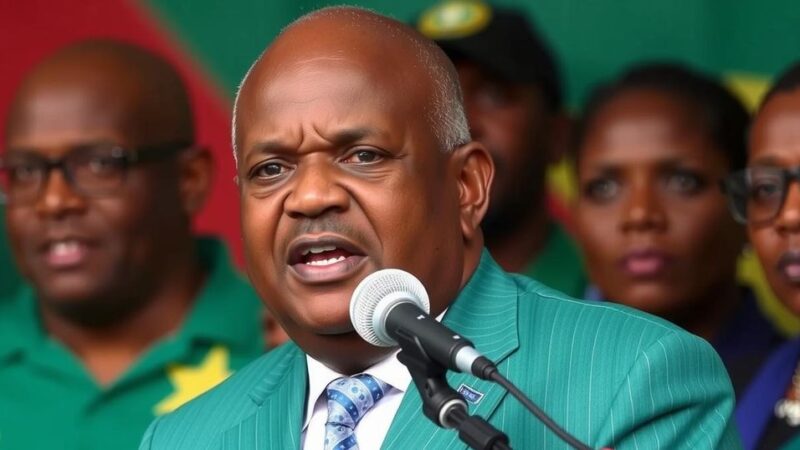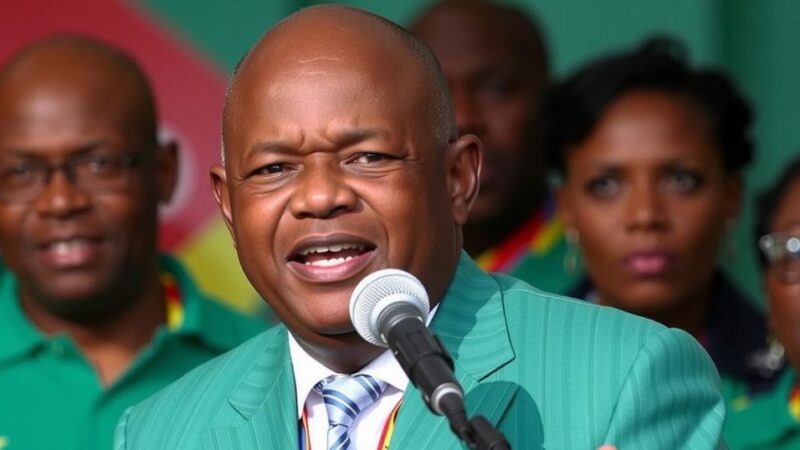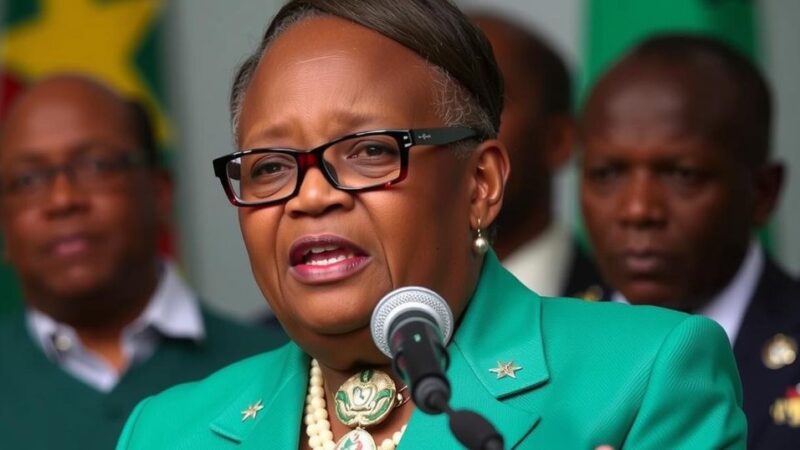Yamandu Orsi of the Broad Front coalition has won the presidential run-off election in Uruguay against Alvaro Delgado, restoring leftist governance after a period of right-leaning rule. With a strong campaign focused on economic reform and social issues, Orsi aims to address the rising concerns of poverty and insecurity, marking a significant political shift in the nation.
Yamandu Orsi, representing Uruguay’s left-wing Broad Front coalition, has triumphed over Alvaro Delgado of the ruling National Party in the closely contested presidential run-off election held recently. Early indications of a tight race resulted in a dead heat prior to the election; however, Orsi’s supporters celebrated in Montevideo as results began to favor him. With this victory, Orsi reestablishes the Broad Front in power after their previous administration ended in 2019.
During his campaign, Orsi promised economic improvements, including increases in wages for low-income workers and enhanced early childhood education and employment opportunities. Addressing concerns about insecurity, he vowed to bolster police presence and install more security cameras in urban areas. Although running in the shadow of significant societal issues, including 25 percent childhood poverty in the country, Orsi’s message resonated with voters. Former President Jose Mujica’s endorsement further strengthened Orsi’s campaign, instilling confidence among leftist supporters.
Despite the uncertain polling figures leading to the run-off, Orsi emerged from the first round with a plurality of votes, setting the stage for the decisive election. As outgoing President Luis Lacalle Pou acknowledged the democratic process and congratulated Orsi on the victory, Orsi declared, “The horizon is brightening. The country of freedom, equality and also fraternity triumphs once again.”
The historical context of the Broad Front’s previous governance from 2005 to 2020 provides insight into the political landscape in Uruguay. Orsi’s win signifies a shift back to leftist policies under a coalition that has formerly overseen important socio-economic progress in the nation.
Uruguay has a rich political history characterized by a strong left-wing presence, particularly from the Broad Front, which previously governed the nation from 2005 until 2019. This victory for Yamandu Orsi marks a significant comeback for the Broad Front, which had seen its power challenged in the previous election by right-leaning coalitions. The political discourse in Uruguay has increasingly focused on addressing socioeconomic issues, including poverty and insecurity, prompting concerns among the electorate. Orsi’s prior experience as the mayor of Canelones, alongside his support from prominent figures like former President Mujica, positions him as a substantial force in addressing these vital issues as he assumes the presidency. His campaign’s focus on economic stability and social welfare echoes the left’s agenda that resonated with many voters seeking broader improvements in societal conditions.
The recent election of Yamandu Orsi as the new president of Uruguay signifies a pivotal change in the nation’s political landscape, reviving the leftist Broad Front coalition’s influence after years in opposition. With a strong focus on economic growth and societal welfare, Orsi’s administration is set to address pressing issues such as poverty and insecurity. As he embarks on this new chapter, the expectations for progress under his leadership will be closely monitored by both supporters and critics alike, eager to witness the promised transformation of Uruguay’s socio-economic environment.
Original Source: www.aljazeera.com







